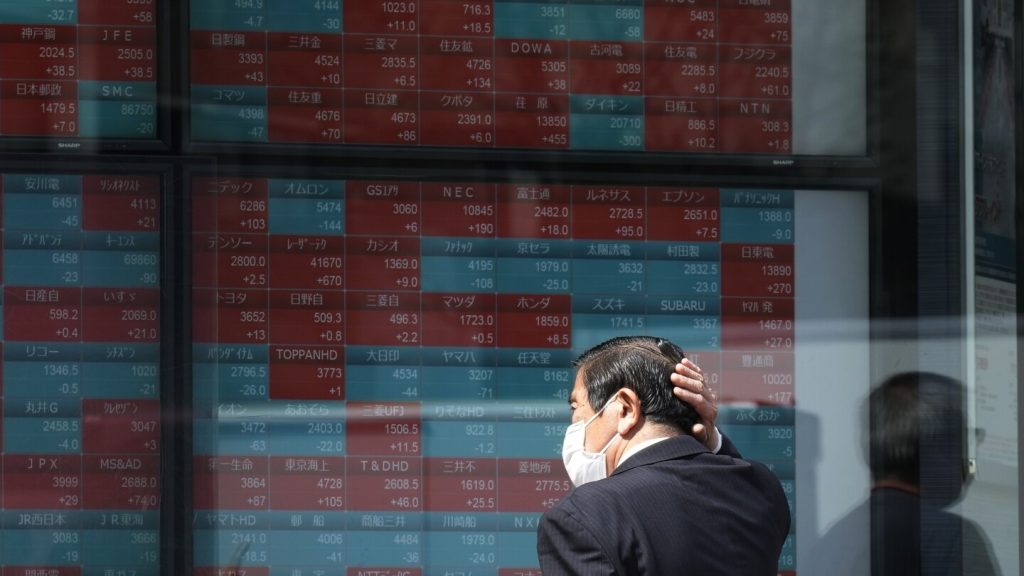Asian markets closed mostly lower on Friday following comments from a U.S. Federal Reserve official hinting at a possible delay in interest rate cuts, raising concerns about inflation. Japan’s Nikkei 225 fell 2.0%, Sydney’s S&P/ASX 200 slipped 0.6%, South Korea’s Kospi dropped nearly 1%, and Hong Kong’s Hang Seng remained flat. Analysts suggested the possibility of a rate cut later in the year due to signs of economic cooling and sustained wage pressures. Wall Street also experienced a decline, with the S&P 500 dropping 1.2% and the Dow Jones Industrial Average swinging 530 points lower.
Tensions in the Middle East further added to market pessimism, as traders awaited the U.S. jobs report due on Friday. A late surge in oil prices, driven by ongoing Middle East tensions, heightened concerns about inflation following oil’s previous gains this year. Meanwhile, Treasury yields dropped, indicating investors seeking safer assets and raising fear among U.S. stock investors. Market predictions for Federal Reserve interest rate cuts this year have been lowered from six to three, aligning with Fed officials’ expectations. Recent economic updates have shown unexpected strength, raising concerns about inflation and potential overheating.
Investors are closely monitoring the job market to assess its impact on inflation and economic growth, hoping for a balance that prevents recession while maintaining stable employment levels. The upcoming U.S. job report is expected to show a slowdown in hiring compared to the previous month. Overall, the S&P 500, Dow Jones Industrial Average, and Nasdaq composite all experienced losses. In the oil market, benchmark U.S. oil prices rose, while Brent crude, the international standard, also increased. In currency trading, the U.S. dollar weakened against the Japanese yen and euro. Analysts are keeping a close watch on economic indicators and geopolitical developments that could impact market volatility in the near future.
Overall, market sentiment remains cautious due to uncertainty surrounding interest rate cuts, inflation concerns, and geopolitical tensions in the Middle East. Investors are monitoring economic data, particularly the upcoming U.S. job report, to gauge the health of the labor market and its implications for inflation and economic growth. The recent market downturn, driven by unexpected economic strength and rising oil prices, reflects investor anxiety about potential overheating and recession risks. As global markets navigate these challenges, analysts are emphasizing the importance of a balanced approach to monetary policy, labor market dynamics, and inflation management to sustain long-term economic stability.


